Related Research Articles

Vespers is a liturgy of evening prayer, one of the canonical hours in Catholic, Eastern Orthodox, Oriental Orthodox, and Lutheran liturgies. The word for this prayer time comes from the Latin vesper, meaning "evening".
A doxology is a short hymn of praises to God in various forms of Christian worship, often added to the end of canticles, psalms, and hymns. The tradition derives from a similar practice in the Jewish synagogue, where some version of the Kaddish serves to terminate each section of the service.
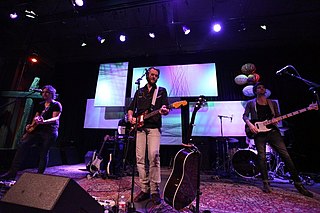
Contemporary worship music (CWM), also known as praise and worship music, is a defined genre of Christian music used in contemporary worship. It has developed over the past 60 years and is stylistically similar to pop music. The songs are frequently referred to as "praise songs" or "worship songs" and are typically led by a "worship band" or "praise team", with either a guitarist or pianist leading. It has become a common genre of music sung in many churches, particularly in charismatic or non-denominational Protestant churches with some Roman Catholic congregations incorporating it into the Mass as well.

The Covenant of Unitarian Universalist Pagans is an independent affiliate of Unitarian Universalists who identify with the precepts of classical or contemporary Paganism: celebrating the sacred circle of life and guiding people to live in harmony with the rhythms of nature. CUUPS members foster the development of "liturgical materials based on earth- and nature-centered religious and spiritual perspectives" as well as encourage "greater use of music, dance, visual arts, poetry, story, and creative ritual in Unitarian Universalist worship and celebration." Many members of CUUPS embrace the cycle of seasons and beauty of all life forms found in nature. Unlike many mainline religious sects, Unitarian Universalists and Pagans both value the "sacredness in the present world rather than on an afterlife." CUUPS is a community open to all Unitarian Universalist members and those who support the tenets.

"Love Divine, All Loves Excelling" is a Christian hymn by Charles Wesley, first published in 1747. It was initially published as part of his Hymns for Those that Seek and Find and quickly became a central hymn in both Methodist and wider Christian worship. The hymn reflects Wesley's teachings on Christian perfection, expressing a longing for God's transforming and sanctifying grace.
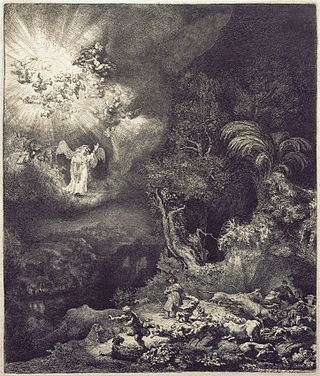
"It Came Upon the Midnight Clear", sometimes rendered as "It Came Upon a Midnight Clear", is an 1849 poem and Christmas carol written by Edmund Sears, pastor of the Unitarian Church in Wayland, Massachusetts. In 1850, Sears' lyrics were set to "Carol", a tune written for the poem the same year at his request, by Richard Storrs Willis. This pairing remains the most popular in the United States, while in Commonwealth countries, the lyrics are set to "Noel", a later adaptation by Arthur Sullivan from an English melody.
Flower Communion, also known as Flower Ceremony, Flower Festival, or Flower Celebration, is a ritual service common in Unitarian Universalism, though the specific practices vary between congregations. It is usually held on the last Sunday of worship in late May or June, as some congregations recess from holding services during the summer. Some congregations hold the ceremony earlier in the spring, sometimes coinciding with Mother's Day or Easter.
"Tantum ergo" is the incipit of the last two verses of Pange lingua, a Medieval Latin hymn composed by St Thomas Aquinas circa A.D. 1264. The "Genitori genitoque" and "Procedenti ab utroque" portions are adapted from Adam of Saint Victor's sequence for Pentecost. The hymn's Latin incipit literally translates to "Therefore so great".
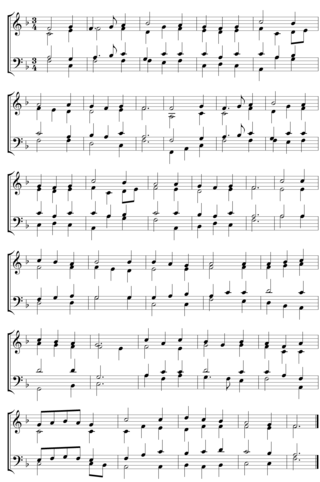
Hyfrydol is a Welsh hymn tune that appears in a number of Christian hymnals in various arrangements. Composed by Rowland Prichard, it was originally published in the composer's handbook to the children's songbook Cyfaill y Cantorion in 1844. Prichard composed the tune before he was twenty years old.
The Divine Service is a title given to the Eucharistic liturgy as used in the various Lutheran churches. It has its roots in the Pre-Tridentine Mass as revised by Martin Luther in his Formula missae of 1523 and his Deutsche Messe of 1526. It was further developed through the Kirchenordnungen of the sixteenth and seventeenth centuries that followed in Luther's tradition.
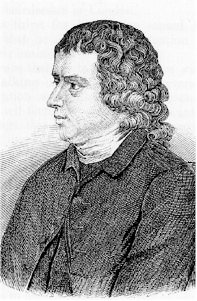
"Come Thou Fount of Every Blessing" is a Christian hymn written by the pastor and hymnodist Robert Robinson, who penned the words in the year 1758 at the age of 22.
"For the Beauty of the Earth" is a Christian hymn by Folliott S. Pierpoint (1835-1917).
Jaroslav Vajda was an American hymnist.

Hodie is a cantata by Ralph Vaughan Williams. Composed between 1953 and 1954, it is the composer's last major choral-orchestral composition, and was premiered under his baton at Worcester Cathedral, as part of the Three Choirs Festival, on 8 September 1954. The piece is dedicated to Herbert Howells. The cantata, in 16 movements, is scored for chorus, boys' choir, organ and orchestra, and features tenor, baritone, and soprano soloists.
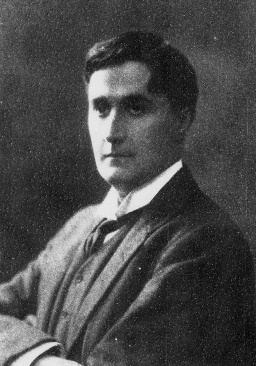
The Five Mystical Songs are a musical composition by English composer Ralph Vaughan Williams (1872–1958), written between 1906 and 1911. The work sets four poems by seventeenth-century Welsh poet and Anglican priest George Herbert (1593–1633), from his 1633 collection The Temple: Sacred Poems. While Herbert was a priest, Vaughan Williams himself was an atheist at the time, though this did not prevent his setting of verse of an overtly religious inspiration. The work received its first performance on 14 September 1911, at the Three Choirs Festival in Worcester, with Vaughan Williams conducting.
Arthur Powell Davies was the minister of All Souls Church, Unitarian in Washington, D.C. from 1944 until his death in 1957. A prolific author of theological books and sermon collections, he came to national prominence in the U.S. through his liberal activism advocating civil rights for African-Americans and women and ethical stands against post-war nuclear proliferation and the methods employed by the American government during the era of McCarthyism.

Spiritual communion is a Christian practice of desiring union with Jesus Christ in the Eucharist. It is used as a preparation for Mass and by individuals who cannot receive Holy Communion.

Adaline Hohf Beery was an American author, newspaper and magazine editor, songbook compiler, as well as a hymnwriter. Born into a Pennsylvania Dutch community, her first job after graduating from Mount Morris College in Illinois was as a compositor in a printing office. She served as the editor of The Golden Dawn magazine and The Young Disciple child's paper; compiled a song-book, Gospel Chimes; and was employed by the Brethren Publishing House.
References
- 1 2 Jason Shelton (May 24, 2002). "Changing the Words: An Historical Introduction to Unitarian Universalist Hymnody" (PDF). Unitarian Universalist History (Online). Retrieved 2 February 2023.
- ↑ French, Kimberly (25 June 2007). "Thirty years of feminist transformation". UU World Magazine. Retrieved 2023-02-02.
- ↑ "Index of Hymn Titles in Singing the Living Tradition". Unitarian Universalist Association. Retrieved 2023-02-02.
- ↑ Singh, Shiv Sahay (2018-03-21). "A Kolkatan discovers new songs by Tagore" . The Hindu. ISSN 0971-751X . Retrieved 2023-02-02.